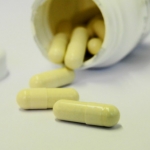Within the field of psychiatry, there is a growing body of literature studying the use of antidepressants in women in the context of pregnancy and the postpartum period. However, much less attention has focused on the impact of these drugs on fertility, particularly in men. Because major depressive disorders affect about one in 10 American men over their lifetimes, it is essential to study the effects of antidepressants on male fertility.
Tanrikut and Schlegel initially reported on two cases of patients treated with selective serotonin reuptake inhibitor (SSRI) antidepressant medication who were evaluated for male infertility. While the patients were still on SSRI antidepressants, the semen specimens were found to have decreased sperm count, impaired motility, and abnormal sperm form. Semen analyses were performed 1-2 months after discontinuation of the antidepressants, and testing revealed improvements in both sperm concentration and motility. They hypothesized that SSRIs may adversely affect sperm transport, and thus sperm quality and number, as opposed to sperm production, which would take longer to recover after drug discontinuation.
To further explore this issue, Tanrikut and colleagues examined the effect of paroxetine on semen parameters in a group of 35 healthy male volunteers, age 18-65 years. Before, during, and one month after paroxetine exposure, serum hormone levels, semen analyses, and sperm DNA fragmentation were assessed. In addition, the subjects completed a questionnaire assessing sexual functioning. Paroxetine was chosen because it has a relatively short half-life and because it has been shown to exert a strong effect on delaying ejaculation.
The authors found that mean DNA fragmentation levels rose from 13.8% at baseline to 30.3% while on paroxetine, and the percentage of patients with abnormal levels of DNA fragmentation (> 30%) rose from 9.7% at baseline to 50% at week 4 of treatment with paroxetine.
DNA fragmentation is now being increasingly evaluated as part of the male fertility evaluation, although clinical indications for this test are still being determined. Levels of DNA fragmentation may vary independently of typical semen parameters including volume, sperm concentration, motility, and morphology. Sperm DNA fragmentation indices of > 30% have been associated with reduced fertility. In addition, the extent of DNA fragmentation may be associated with lower fertility and worse pregnancy outcomes, even when using in vitro fertilization and intracytoplasmic sperm injection.
Reassuringly, the authors did not find any statistically differences in the hormonal parameters assessed, including levels of follicle stimulating hormone, luteinizing hormone, or prolactin. While there were statistically significant decreases in testosterone and estradiol, these were still well within the normal range. Semen parameters (i.e., semen volume, concentration, motility, and morphology) were not significantly altered with use of the SSRI. In addition, as noted in other studies, patients on paroxetine reported increased erectile dysfunction (up to 35%) and decline in ejaculatory function (47%); these were both significant, but reassuringly, these changes were back to near normal levels one month after treatment.
While this preliminary study indicates that paroxetine may have adverse effects on sperm quality, it is not clear if other SSRI antidepressants have the same effect. The authors hypothesize that SSRIs, especially paroxetine, slow the transport of semen and that increasing the time spent in transit may allow more DNA damage to occur. Further research is required to fully assess the long-term effects of SSRIs on fertility.
Betty Wang, MD
Tanrikut C, Schlegel PN. 2007. Antidepressant-associated changes in semen parameters. Urology 69(1):185.e5-7.
Tanrikut C, Feldman AS, Altemus M, Paduch DA, Schlegel PN. 2009. Adverse effect of paroxetine on sperm. Fertil Steril (in press).








My husband and I are planning for baby #3. He began taking Paxil after baby #2 and we do not feel comfortable trying to conceive with this medication in his system. With our first two children, neither one of us were taking any medications other than vitamins. This article states that after 1-2 months of being off the medication, there was improvment in sperm concentration and motility but what about quality? HOW LONG WOULD YOU RECOMMED MY HUSBAND TO BE OFF OF THE PAXIL BEFORE TRYING TO CONCEIVE TO GET THE BEST QUALITY SPERM? ALSO, IS THERE ANY TYPE OF ANTIDEPRESSANT FOR A MAN THAT DOES NOT ADVERSELY AFFECT THE SPERM? PLEASE HELP. THANKS!
Hi,
My husband is also on this medication and we tried not knowing of this study, the pregnancy ended in miscarriage at 10 weeks which is what the study also warns too.
So next time we would like to be medication free. I would also like to Know how long we should wait before we try.
Pamela
we have the same problem, we are gonna go to a fertility dr to see if they can help. we have been trying for a year now and we are still unsuccessful. so after the holidays we r hoping to be preg by dr help.
@Elizabeth
Have you had any luck? My wife is 5 weeks pregnant. I just read the miscarriage story above so pretty worried. I take 12.5mg a day.